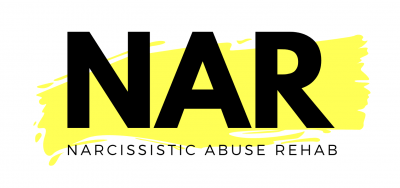BLAME-SHIFTING is the redirection of responsibility for one person’s actions, behavior, or mistakes onto another person, group, or thing. It is a destructive act of deception that shirks personal responsibility and destroys trust in relationships. It is a tactic commonly used in the context of narcissistic abuse.
What Is Blame-Shifting?
- Blame-shifting is a form of deflection.
- It is a practice people use individually and collectively to avoid accepting responsibility for their actions.
- It is a learned behavior used to cover up mistakes through deceit.
- Blame-shifting is one of the stages in the process of scapegoating.
- It can devastate relationships, diminishing friendships, families, and communities because it erodes trust.
What Are Some Examples?
Here are some of the ways blame-shifting can show up:
- A CEO blames their staff for poor performance rather than take responsibility for poor management choices.
- A politician who blames the opposition party for their errors rather than take accountability.
- A student who blames their academic failure on a teacher rather than taking responsibility for their lack of motivation.
- An unfaithful spouse blames their infidelity on their partner instead of admitting it was their own decision.
How Might It Sound?
Some of the ways people may try to redirect responsibility for an outcome by blame-shifting are:
| You made me lash out at you! | Person A is blame-shifting their anger management issues on to Person B to avoid taking responsibility and learning to control their emotions. |
| You’re the reason why I drink. | Person A is blame-shifting their choice to use alcohol on to Person B to liberate themselves from responsibility for their actions and facing their substance abuse issues. |
| My family/friends don’t like you so I am divesting from our relationship. | Person A is blame-shifting their loss of interest in their relationship with Person B on to their family/friends. This is a combination of two psychological defense tactics: blame-shifting and triangulation. |
| It’s your fault I was unfaithful because you let yourself go. | Person A is blame-shifting their lack of integrity and restraint on to Person B by justifying their betrayal through fault-finding. |
| I was perfectly happy until you came along. | Person A is evading responsibility for their mental state by blame-shifting on to Person B instead of recognizing that they alone are responsible for their happiness. |
| I’m too busy with my job to make time for our relationship. | Person A is blame-shifting their emotional neglect of Person B on to their job instead of acknowledging that they choose their priorities. |
| It’s your fault I run out of money because your standards are too high. | Person A is blame-shift their financial problems on to Person B instead of working on their boundaries and communication skills. |
Why Do People Blame Shift?
- Blame-shifting is a strategy used to maintain power and control while avoiding responsibility.
- People and organizations often avoid criticism and scrutiny by blame-shifting.
- Authority figures are often prone to blame-shifting to retain their status and escape accountability for their errors.
Summary
In conclusion, blame-shifting is the transfer of responsibility from one person or group to another person or group. It is a toxic behavior as it diminishes trust between individuals, collectives, and institutions. It’s wise to confront the behavior and resolve it to cultivate trust and accountability.
Confidential support is available to anyone experiencing abuse.
Book a one-on-one consultation or coaching session.
NAR’s Journalistic Standards and Practices
About NAR • Report Typo or Error






